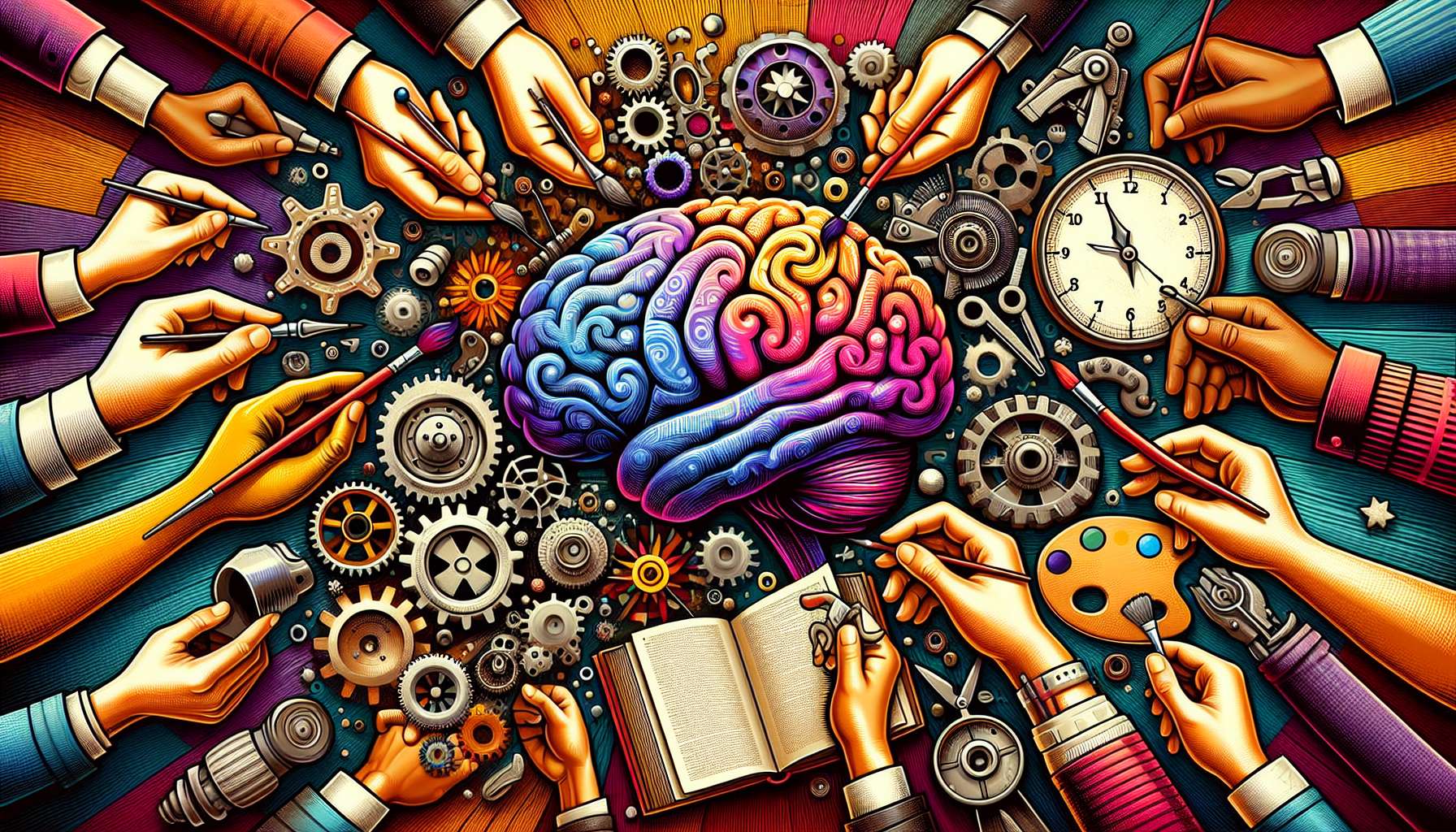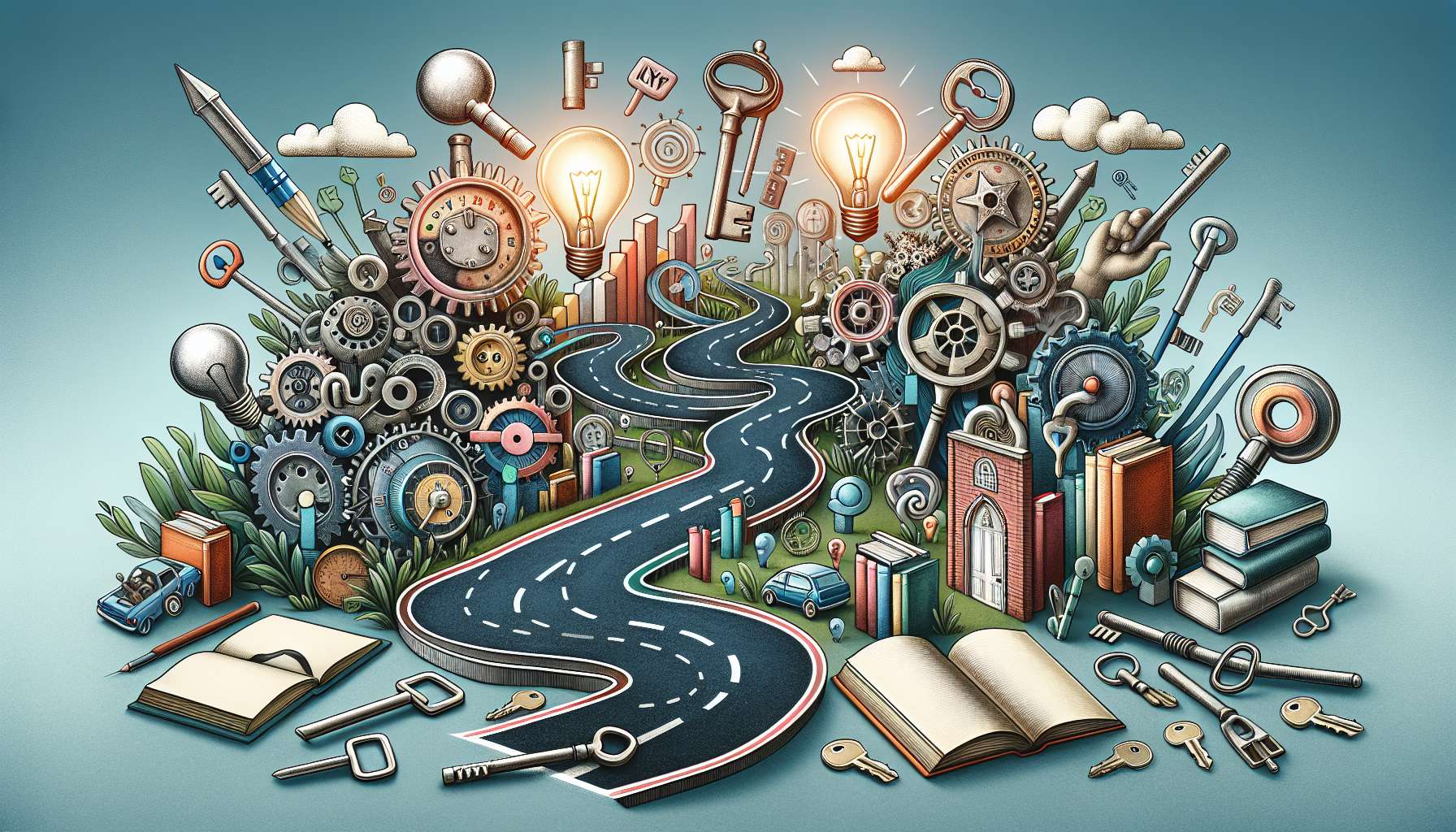The Essential Skill Set: Navigating the Path to Success
Imagine a world where you possess the necessary tools to excel in any endeavor you pursue. A world where your skills set you apart, paving the way for success and fulfillment. This world is not a distant dream but a tangible reality within your grasp. The key to unlocking your full potential lies in cultivating an essential skill set that serves as the foundation for personal and professional growth. In this comprehensive guide, we will delve deep into the essential skill set, exploring its significance, components, and practical applications.
The Evolution of Essential Skills
Throughout history, certain skills have stood the test of time, transcending societal changes and technological advancements. From critical thinking and communication to adaptability and problem-solving, these core competencies have been valued across cultures and generations. The concept of an essential skill set has its roots in the ancient Greek philosophy of the ‘trivium’ and ‘quadrivium’, which encompassed grammar, logic, rhetoric, arithmetic, geometry, music, and astronomy.
Fast forward to the modern era, and the essential skill set has evolved to meet the demands of a rapidly changing world. In the digital age, skills such as digital literacy, emotional intelligence, and creativity have become indispensable for success in the workplace and beyond. The ability to navigate complex challenges, collaborate effectively with others, and adapt to new technologies has become essential in today’s competitive landscape.
Components of an Essential Skill Set
As we dissect the essential skill set, we uncover a mosaic of interconnected abilities that form the building blocks of success. These components encompass a wide range of skills, from technical proficiencies to soft skills that enhance interpersonal relationships and emotional intelligence. Let’s explore some of the key components that make up an essential skill set:
1. Technical Skills
Technical skills are specific abilities that enable individuals to perform specialized tasks within a particular field or industry. These skills are often quantifiable and can be acquired through education, training, or hands-on experience. Examples of technical skills include coding, data analysis, graphic design, and project management. In today’s digital economy, proficiency in technical skills is crucial for staying competitive and relevant in the job market.
2. Communication Skills
Effective communication is a cornerstone of success in both personal and professional settings. Strong communication skills encompass verbal, written, and nonverbal communication, as well as active listening and conflict resolution. The ability to convey ideas clearly, influence others, and build rapport is essential for fostering productive relationships and driving collaboration.
3. Critical Thinking
Critical thinking is the process of analyzing, evaluating, and interpreting information to make informed decisions and solve complex problems. This cognitive skill involves reasoning, logic, and creativity, allowing individuals to think critically and objectively about a situation. Critical thinking is a valuable asset in decision-making, problem-solving, and innovation.
4. Emotional Intelligence
Emotional intelligence refers to the ability to understand and manage one’s emotions, as well as perceive and empathize with the emotions of others. This skill involves self-awareness, self-regulation, social awareness, and relationship management. Emotional intelligence plays a crucial role in leadership, conflict resolution, and building strong interpersonal connections.
5. Adaptability
Adaptability is the capacity to adjust to new circumstances, challenges, and environments with flexibility and resilience. In today’s fast-paced world, the ability to adapt to change is essential for staying ahead of the curve and thriving in dynamic situations. Adaptability involves embracing uncertainty, learning from failure, and continuously evolving to meet evolving demands.
Applications of an Essential Skill Set
The essential skill set serves as a versatile toolkit that empowers individuals to navigate various aspects of their lives with confidence and competence. Whether in the workplace, academia, or personal relationships, these skills play a vital role in shaping outcomes and driving success. Let’s explore some of the practical applications of an essential skill set:
Workplace Success
In the professional sphere, an essential skill set is a key determinant of success and career advancement. Employers value candidates who possess a diverse range of skills, as they are better equipped to handle the challenges of the modern workplace. Individuals with strong communication, problem-solving, and leadership skills are more likely to excel in their roles and contribute effectively to their organizations.
Moreover, technical skills such as digital literacy, data analysis, and coding are in high demand across industries, driving the need for continuous learning and upskilling. By honing their technical proficiencies and soft skills, individuals can position themselves as valuable assets in the job market and secure rewarding opportunities for growth and development.
Academic Excellence
In the academic realm, an essential skill set is instrumental in fostering student success and achievement. Students who possess strong critical thinking, communication, and time management skills are better equipped to excel in their studies and overcome academic challenges. By cultivating these skills, students can enhance their learning experience, improve their academic performance, and prepare for future academic pursuits.
Additionally, emotional intelligence plays a crucial role in fostering positive relationships with peers and teachers, as well as managing stress and coping with academic pressures. By developing their emotional intelligence, students can navigate the complexities of the academic environment with resilience and confidence.
Personal Growth and Well-being
On a personal level, an essential skill set is essential for fostering personal growth, resilience, and well-being. Individuals who possess strong communication, self-awareness, and adaptability skills are better equipped to navigate life’s challenges and seize opportunities for growth and development. By cultivating these skills, individuals can enhance their interpersonal relationships, manage stress effectively, and cultivate a positive mindset.
Moreover, emotional intelligence plays a critical role in self-care, empathy, and emotional regulation, enabling individuals to build strong connections with others and nurture their mental and emotional well-being. By honing their emotional intelligence, individuals can enhance their overall quality of life and achieve greater fulfillment and happiness.
Expert Opinions
According to renowned psychologist Daniel Goleman, “Emotional intelligence is a key factor in personal and professional success, influencing our relationships, decision-making, and overall well-being. Individuals who possess high emotional intelligence are better equipped to navigate the complexities of the modern world and thrive in diverse environments.”
Moreover, leadership expert John C. Maxwell emphasizes the importance of adaptability in today’s fast-paced world, stating, “Adaptability is the key to survival and success in a rapidly changing environment. Leaders who can pivot, innovate, and embrace change are more likely to succeed and lead their teams to victory.”
Common Misconceptions
One common misconception about the essential skill set is that it is fixed and immutable, with individuals either possessing these skills or lacking them. In reality, skills can be developed and honed through practice, training, and continuous learning. By investing time and effort in skill development, individuals can enhance their competencies and unlock their full potential.
Another misconception is that technical skills are the only skills that matter in the workplace. While technical skills are important, soft skills such as communication, critical thinking, and emotional intelligence are equally valuable in driving success and fostering collaboration. Employers are increasingly prioritizing candidates who possess a well-rounded skill set that combines technical proficiencies with interpersonal abilities.
Conclusion
To wrap things up, the essential skill set is a powerful toolkit that empowers individuals to navigate the complexities of the modern world with confidence and competence. By cultivating a diverse range of skills, from technical proficiencies to soft skills like communication and adaptability, individuals can position themselves for success in the workplace, academia, and personal relationships.
As we continue to evolve in a rapidly changing world, the importance of an essential skill set cannot be overstated. By investing in skill development, continuous learning, and self-improvement, individuals can unlock their full potential and achieve their goals with clarity and purpose. Remember, the journey to success begins with mastering the essential skill set are you ready to take the first step?




